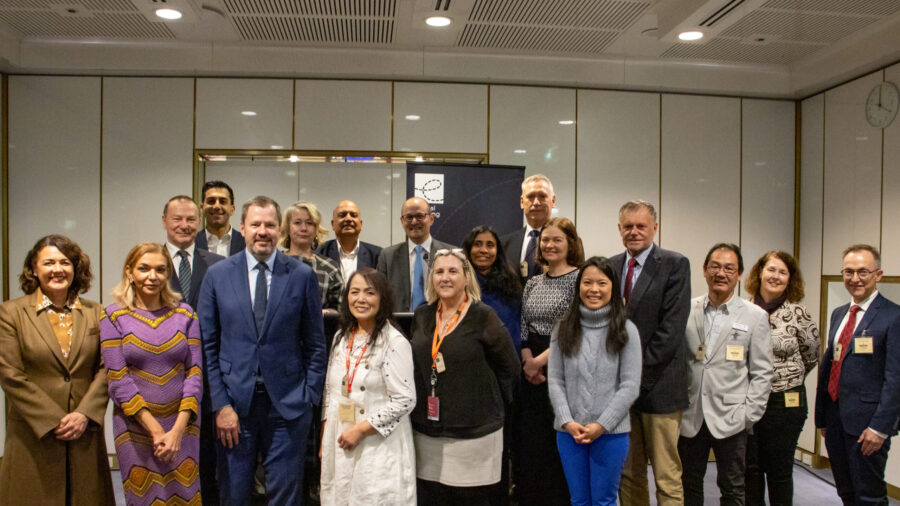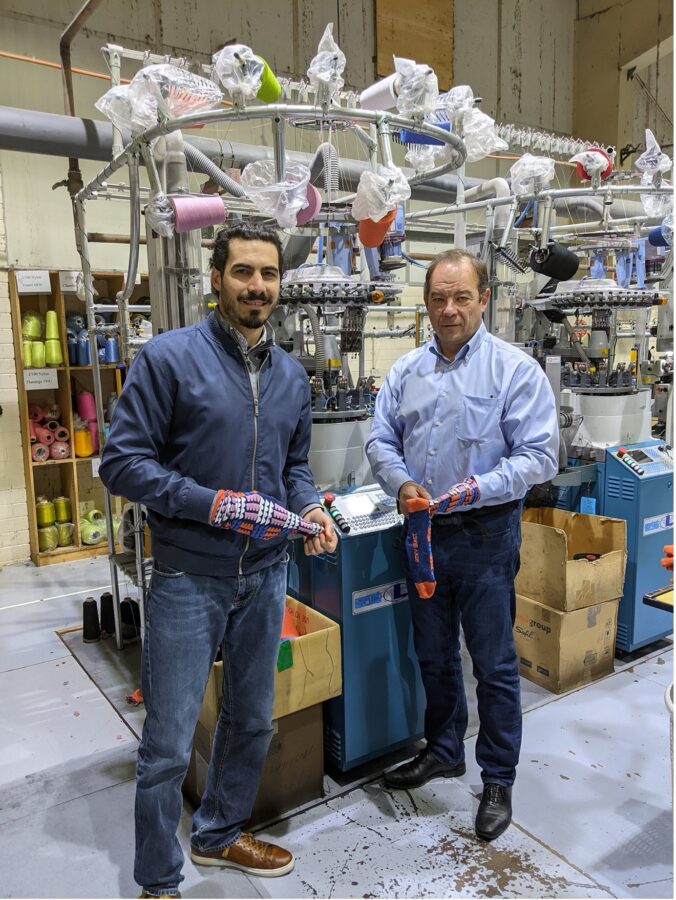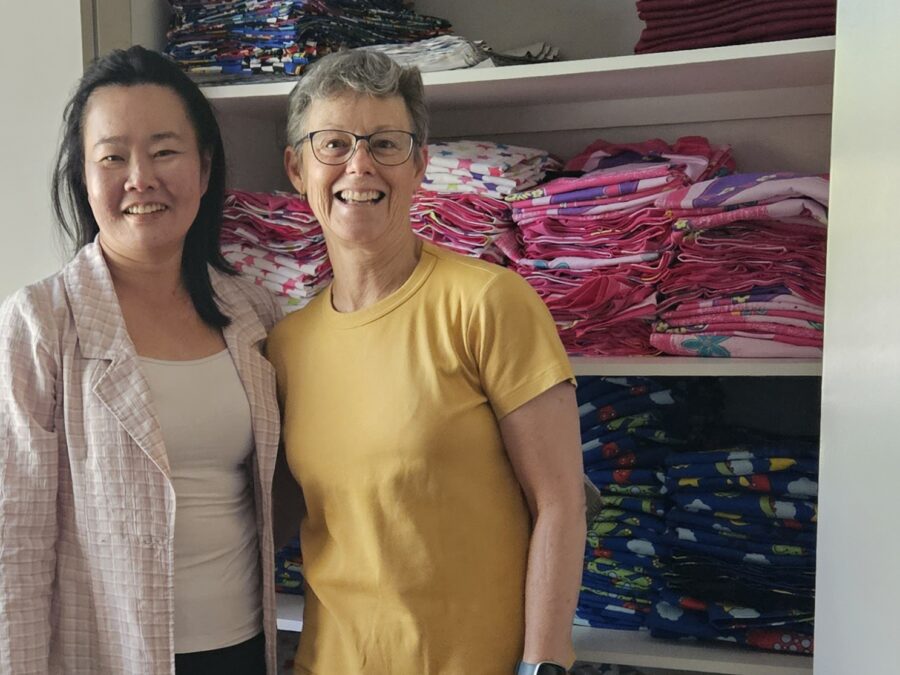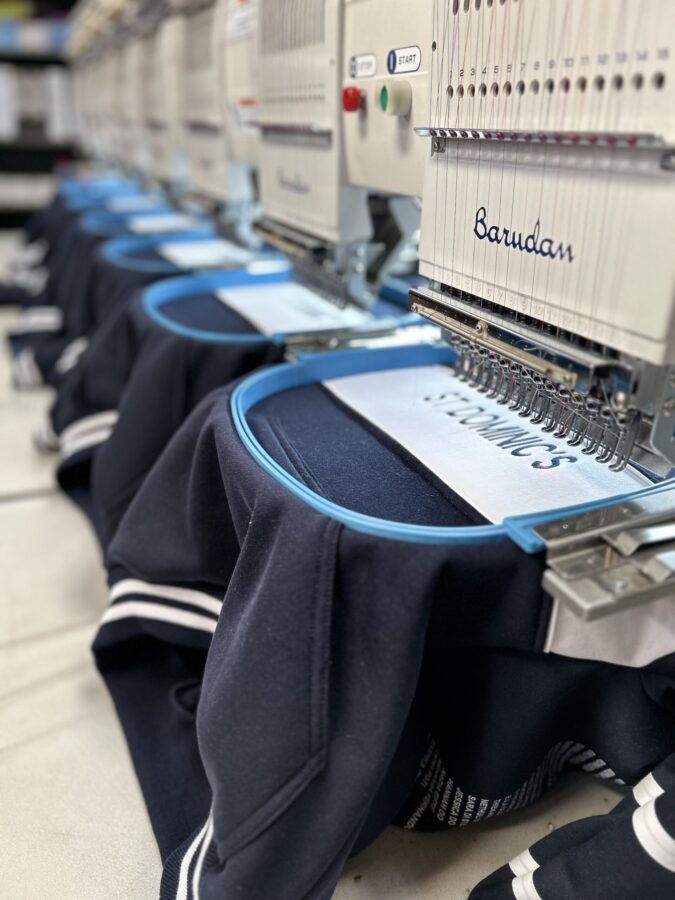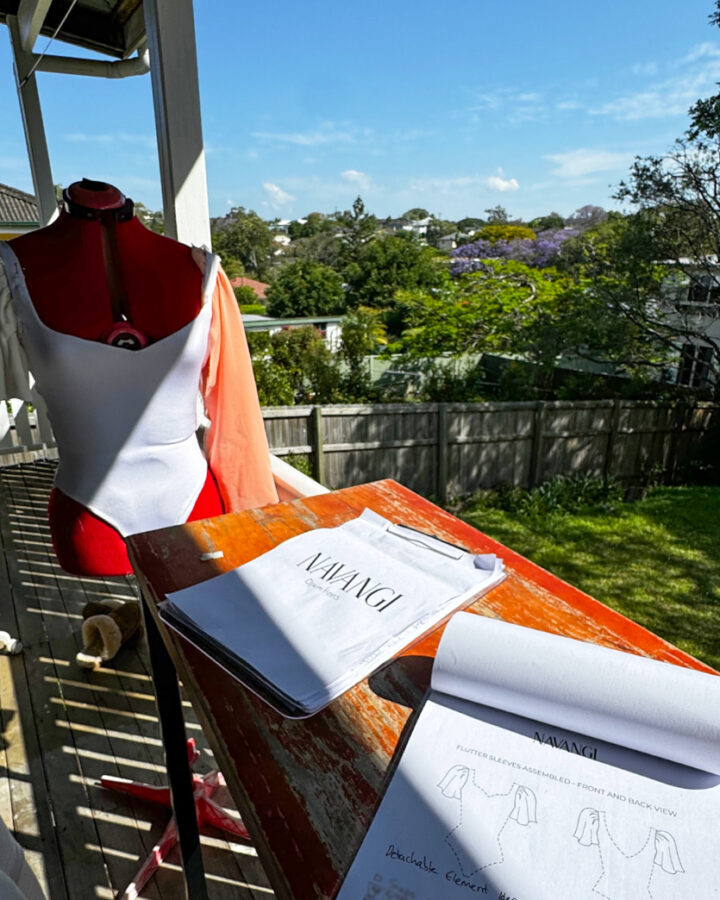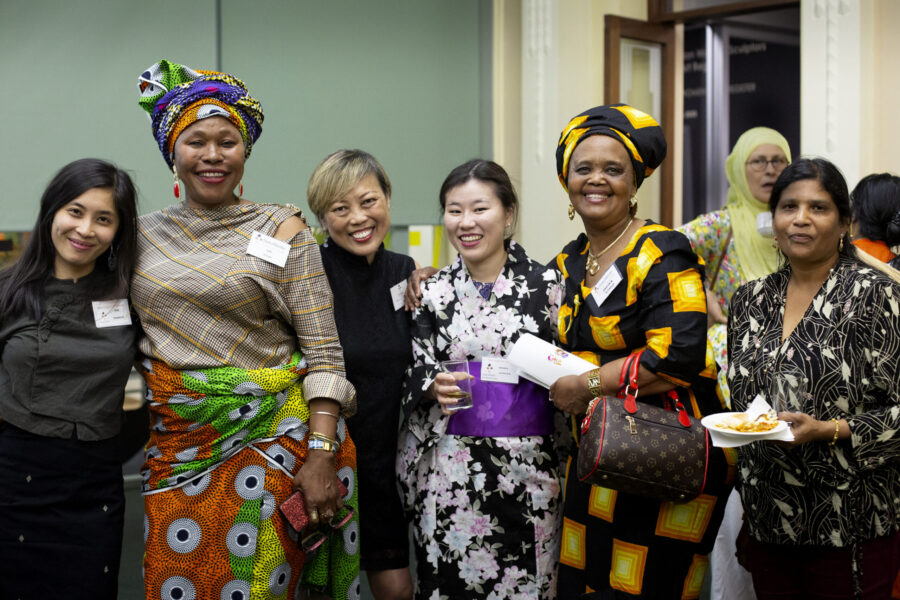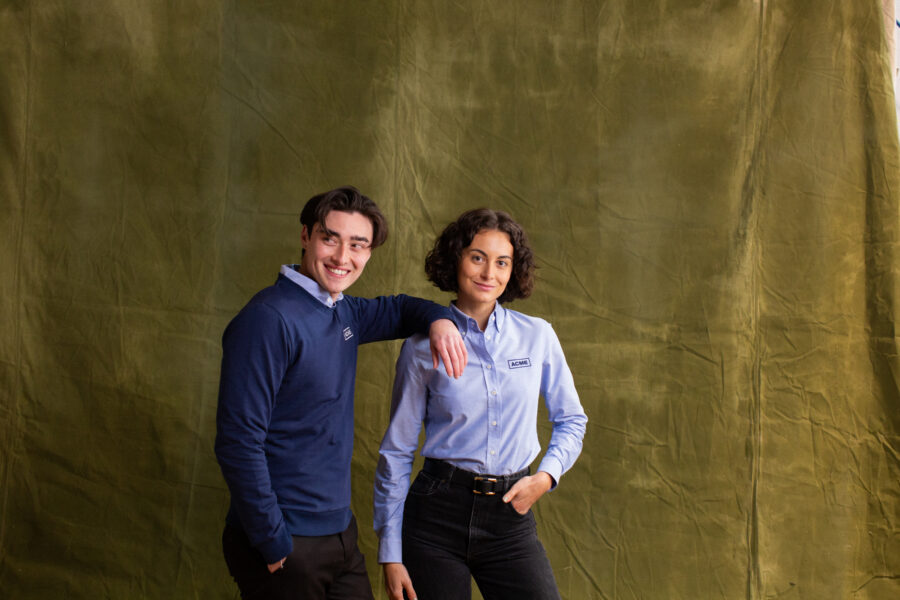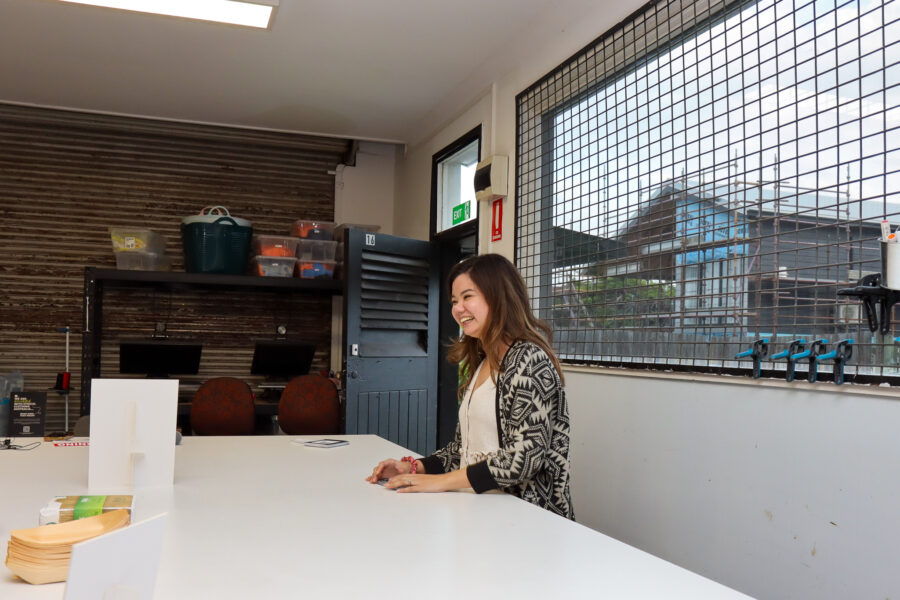My name is Joucelen (Joss) Gabriel. I am the Production Manager at The Social Outfit, a brand and manufacturer that also operates as a social enterprise and charity. I coordinate the development of our collections, run our Sewing School and guide our sewing technicians (all from refugee backgrounds and most in their first Australian job) to further develop their skills and confidence in Australia’s fashion industry.
A Q&A with Joss Gabriel from The Social Outfit
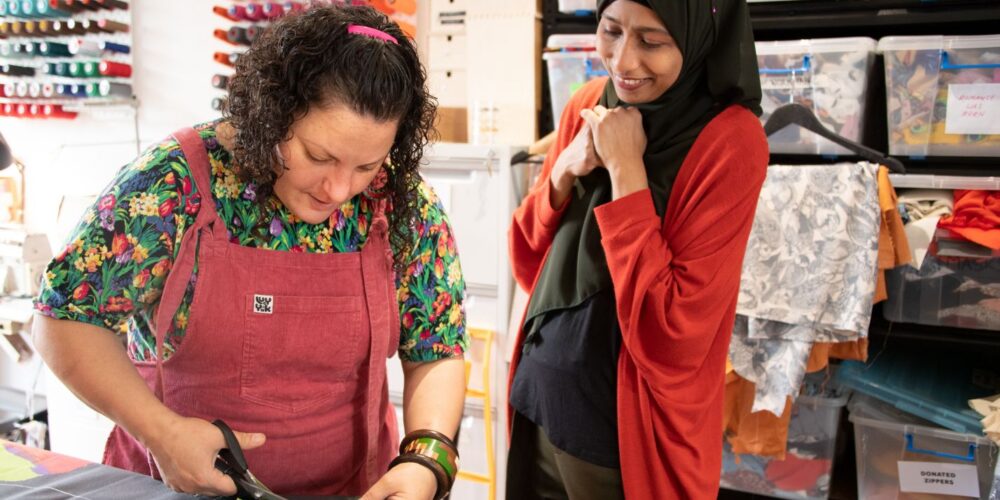
A Q&A with Joss Gabriel, Production Manager at The Social Outfit
Q&A with Joss Gabriel who is the Production Manager at The Social Outfit, a brand and manufacturer that also operates as a social enterprise and charity.

Hi Joss, can you tell us a bit about yourself?
What led you to work in the textile, clothing and fashion industry in the first place?
I come from a background of home sewers and gravitated towards sewing at an early age, then became obsessed with it. I went to TAFE and completed a Certificate IV in Production then gained experience working with a tailor in King Street, Newtown in Sydney.
After that, I started my own small-volume manufacturing and sample-making business which I ran for about 15 years before joining the Social Outfit as Production Manager in early 2020. I have been with The Social Outfit now for four and a half years, and during this time we have managed to triple the size of our sewing team.

Can you tell us a bit about The Social Outfit?
The Social Outfit opened its doors in 2014 with the specific purpose of training and employing women with refugee and new migrant backgrounds. Still today, only about 20% of refugee women in Australia are engaged in the workforce. A job is much more than a paycheck – it means getting out of the house, meeting new people, inspiring your daughters, gaining confidence and independence. A job means that Australia starts to feel like home, and research shows us over and over that when women work, entire communities thrive.
We chose fashion because many refugee and new migrant women come from countries with a long tradition of sewing – and when you sew, you talk with your hands, so English language skills are not as essential. We offer refugee women ethical employment; we hire them to manufacture clothes; we pay them per hour (above the award rates) and not per piece. We also train them, upskill them as needed and we offer free sewing classes, both out in the community and in our workroom.
To date, The Social Outfit has trained over 990 and employed 104 refugee and new migrant women. Importantly, of those who have left us, over 85% have secured external ongoing employment!
Why is it important for The Social Outfit to manufacture ethically? What are the benefits and challenges?
The Social Outfit is on a mission not only to support refugee women to kickstart their Australian careers, but also to revolutionise the fashion industry. We believe that women want to wear sustainable clothes that help empower and uplift other women, rather than clothes that harm the environment and are exploitative of the makers.
It is not simply important for the Social Outfit to manufacture ethically, it is our purpose of existing. My goal is to support women who love sewing and to transition their skills to the local industry so they can ethically manufacture clothing and earn above the Award wages.
Manufacturing ethically has never been more important, because we are faced with increased automation, mass production and modern-day slavery, and it is predominantly women who are manufacturing clothes. These women are not even making a living wage, because businesses want to manufacture cheap clothing because consumers don’t want to pay for the true cost of what a garment takes to make. My feeling is that this is finally changing, and The Social Outfit is a social enterprise that is at the forefront of the movement, because everything that we do is ethical, sustainable and local.
One of the benefits of manufacturing locally and ethically is that we have complete control over what we manufacture, how it is manufactured and in what quantity. Our quantities are very small, which also allows us to use deadstock donated fabric after receiving a small meterage. We can allocate the fabric to a design and once it is done, it is done. We are not overproducing; we are producing based on our fabric availability and reacting to customer demand. The fabric we use is often donated by businesses in the local industry and where not, it is still industry waste. Given this, one of the major benefits is that we have a lot of control over what is and isn’t produced.
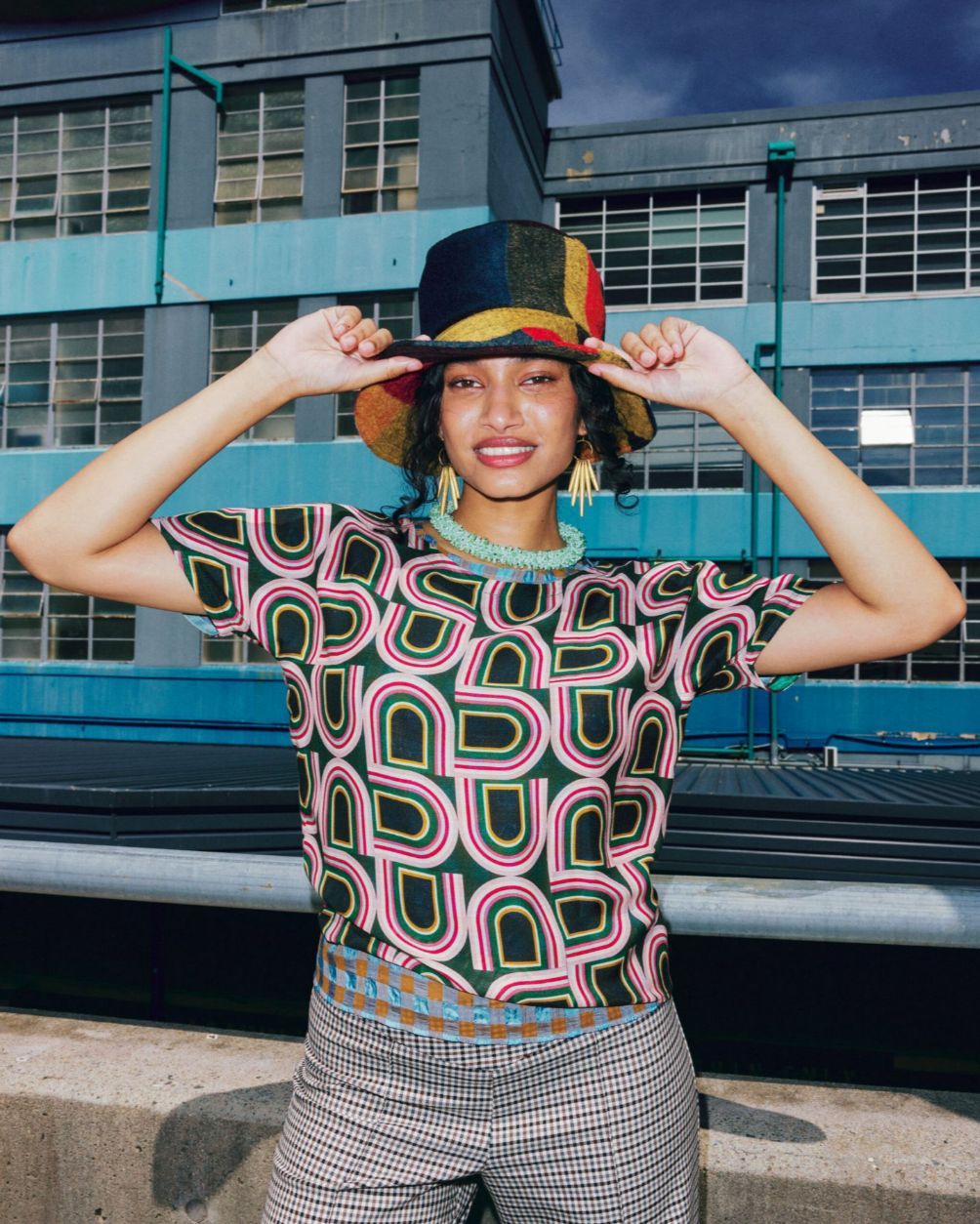
The Social Outfit has been recently been accredited by Ethical Clothing Australia – congratulations! What made you decide to get reaccredited in the first place?
We moved our workroom in 2022 to Marrickville which has doubled our floor space. With this, we have taken on more contract manufacturing because the space has allowed us to employ more women. In order to work with partners like Workwear Group and hopefully now other third-party clients in the future, it was important that we become Ethical Clothing Australia accredited.
Before our accreditation, our customers still shopped with us as they knew our ethical and sustainable values and mission. However, the accreditation is great for recognition beyond just our word. We are hoping this will open up more potential contract manufacturing opportunities in the future that will help us to support and empower more women.
Can you tell us about your Wear The Change challenge and fundraiser. We’d love to know where the idea came from and how it has progressed!
We really want to encourage consumers to buy ethical, quality clothes and wear them for longer. We wanted to show how many ways a piece of clothing can be worn, and we also needed to fundraise to help us empower refugee women in Sydney with free training programs, mentoring and other programs. So, we thought – why not do both at the same time?
The campaign runs during Refugee Week, on 17 – 21 June, and asks participants to commit to wearing one piece of ethical clothing for five days, styling it in different ways and asking friends, family, colleagues to donate to their profile. All the money raised will go to The Social Outfit to help us continue our mission.
You can keep up with the challenge by following The Social Outfit on Instagram or Facebook.
Related articles
Explore more insights, updates and stories from across Australia’s ethical and local manufacturing industry.

